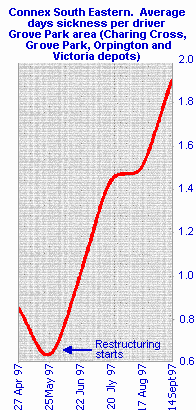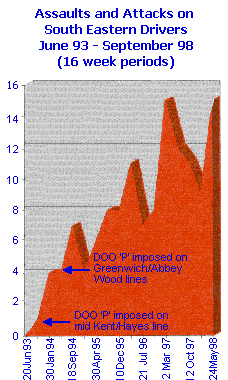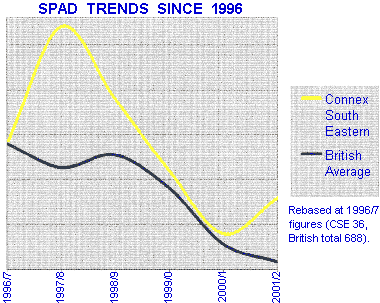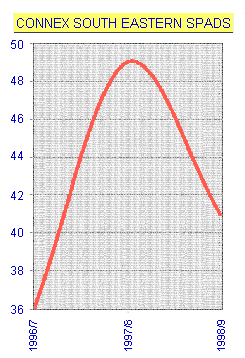Air conditioning. The policy of the South Eastern division, the South Eastern Train Operating Company, then Connex South Eastern when it took over the franchise, was to perpetually delay any solution to the problem of 'solar gain' in drivers' cabs - until the Railway Inspectorate threatened to impose an Improvement Notice. 'Management also pointed out that they were trialling air conditioning in one train,' This is not correct. One unit had a fan, i.e. something that moved hot air around the cab; it was not an air conditioning unit.
Drivers' Restructuring Agreement. Why were some drivers under the impression that duties involving suburban work would last, at most, 9¾ hours? The documentation, signed both by CSE managers and ASLE&F officials was not clear. Drivers who had attended the few meetings arranged to give information about Drivers' Restructuring said that ASLE&F officials had clearly told them that no suburban duty would be more than 9¾ hours. Connex refused to publish any duties until after the vote had been announced.
An ASLE&F company council member, who was subsequently voted out of office, later announced that 'if drivers knew what they were letting themselves in for, they would have voted against.' The maximum length of duty was in fact 11 hours; however, some work that had previously been part of a day's duty, had, after the implementation of Drivers' Restructuring, to be carried out by a driver after booking off. So in reality, the length of duty could be up to 11½ hours.
| |

Sickness increased considerably after the introduction of Drivers' Restructuring - mainly due to the increase in the maximum daily hours a driver had to work. The increase in sickness among Connex South Eastern drivers was 115%. In the Grove Park area - with a higher proportion of DOO P work than any other area - the increase was 210%. Data source: Connex South Eastern.
|
|










